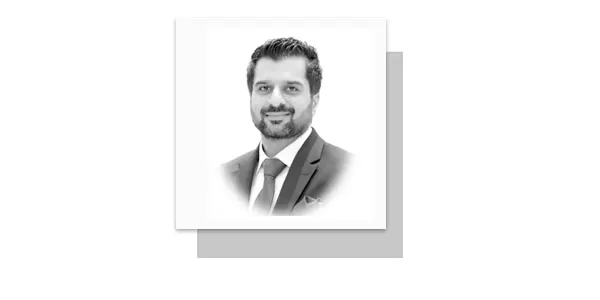HUMANS are peculiar organisms. Initially relying on luck, they become arrogant when their fortune gives them power. Even though civil service is an opportunity to serve the nation, many individuals still approach it with this attitude. Many civil servants see civil service as a transformative platform, offering them all the perks and privileges. However, a restricted number of civil servants view it as a chance to improve the lives of those who rely on them to resolve their pressing issues promptly. There is a massive contrast between becoming a civil servant and being one. A genuine civil servant adjusts their personality to match the role’s requirements. To become a true civil servant is to accept the responsibility bestowed by the Almighty.
The primary quality of a true public servant is the simplicity they must embrace in life. A true public servant sets the perfect example by leading a humble and frugal life, dedicated to serving the people. The main focus of a civil servant should be on performing their job effectively, rather than trying to look affluent by wearing expensive attire. Angela Merkel, the Chancellor of Germany, is famous for her laid-back fashion sense. When asked by a reporter why she doesn’t wear new clothes often, she replied that her occupation is that of a civil servant, not a model.
Moreover, a true public servant embraces the mindset of serving the masses instead of ruling over them. This mindset changes the way public interactions are approached. Successful public service delivery is determined by a positive attitude toward the public. Civil servants displaying a power-oriented attitude contradict their role as reliable public servants by prioritizing wealthy and influential individuals over the poor. In addition, an authentic civil servant is immune from corruption. Despite seeming unrealistic, this is the key trait of a true civil servant. The true essence of a civil servant lies in the courage to say no to corrupt bosses, which is nurtured through loyalty to one’s job.
A true public servant values the concept of being held accountable. This includes both worldly and afterlife accountability. Those who firmly believe in being accountable to a higher authority won’t have any corrupt inclinations. The primary concern here is Pakistan’s failure to produce civil servants who can serve as role models for society in recent times. In our society, where power is highly valued, civil services offer young people the best chance to attain the power necessary for social recognition and respect. A civil servant who leads a humble life embraces a moderate lifestyle, takes joy in public service and avoids any misconduct is often shunned by society. This is the genuine portrayal of the society we inhabit. The family members, relatives and peers of civil servants anticipate them to live up to a high standard of living.
The civil service in Pakistan is shaped by social expectations and political manipulations, posing major obstacles for those who truly desire to serve their country. As a result, completely honest civil servants struggle to handle social and political opposition, often abandoning their dreams of serving the country. To transform civil service, we need to change our social behaviour, respecting civil servants who adopt a modest lifestyle and set examples in public service delivery. This also requires genuine cultivation of character among civil servants, instilling values of integrity, honesty and selflessness from the start of their careers. Countries like Singapore, with rigorous selection and training processes emphasizing ethical behaviour and public service, exemplify this approach. Developing mindsets that refuse corrupt practices is crucial and feasible, as demonstrated by many civil servants who have chosen the path of righteousness despite significant pressure. Continuous ethical training and robust anti-corruption frameworks can help produce individuals who remain uncorrupted.
This is indeed mandatory to foster a culture of transparency and accountability in the official environment by civil servants. For instance, in New Zealand, transparency measures such as public access to government documents and strict conflict-of-interest policies have significantly reduced corruption levels. Moreover, a civil servant must lead by example in all spheres of life. This is because the public takes cues from civil servants. For example, the leadership of civil servants during crises, such as the efficient management of disaster relief efforts in Japan, inspires public confidence and cooperation. Capable civil servants become effective leaders by adding value to their surroundings through initiatives that improve public welfare.
We need to teach civil servants that their prime ambition should be to ease the sufferings of people and extend a lending hand to all those who depend on them for their day-to-day matters. For example, social programs led by civil servants in Scandinavian countries have significantly improved the quality of life for their citizens, proving that dedicated public service can make a tangible difference. This is the opportune time to cultivate behaviours and attitudes that can generate civil servants who can bring about substantial change in the realm of civil services. If we don’t act, the civil service structure in Pakistan will continue to uphold the plutocratic system that has contributed to Pakistan’s decline in social, political and economic aspects.
—The writer is an educationist and a Commoner from 44th Common, based in Sargodha.
(waqarhassancsp@gmail.com)










